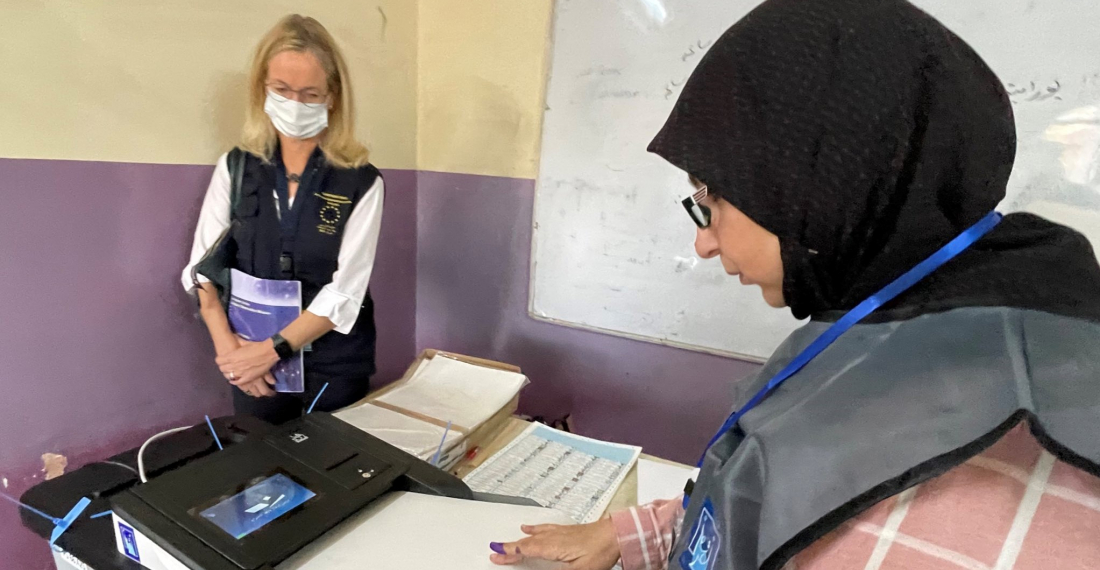Polls have closed in Iraq’s parliamentary elections on Sunday after a low turnout of only 41 percent. The figure makes it the lowest record since the toppling of Saddam Hussein’s regime in 2003. Similar to many electoral systems globally, the results will be out soon yet discussions to form a government could take a while.
Full results are not announced yet but the Shia-dominated parties are expected to take the lion’s share in Iraq’s unicameral legislature. Experts suggest a shifting of balance as the elections will give sway to the nationalist Saeroun alliance of populist Shia cleric Moqtada al-Sadr, against the pro-Iranian Fatah alliance, mainly made up of parties affiliated with Shia militias in the Popular Mobilisation.
The chief Iraq election observer from the European Union, Viola von Cramon, said the low turnout was significant. However, she witnessed no irregularities or technical issues during the vote. The Iraqi security forces made several arrests related to irregularities but the authorities said the irregularities did not reach the level of violations.
“This is a clear … a political signal and one can only hope that it will be heard by the politicians and by the political elite of Iraq,” she told reporters.
Many in Iraq have chosen to boycott the voting due to what they see as lack of improvements in services and in the security situation. Iraq is still a threat to terrorist attacks which have intensified last due to the cabinet’s focus on the pandemic. Other eligible voters boycotted the elections due to the corruption among public institutions.
Abbas Kadhim, director of the Iraq initiative at the Atlantic Council, said that the low turnout was in “no shape or form an indicator of the illegitimacy of the election.”
“As long as nobody, who was eligible to vote was prevented from voting, then the vote is legitimate. And that is what happened,” he added.






